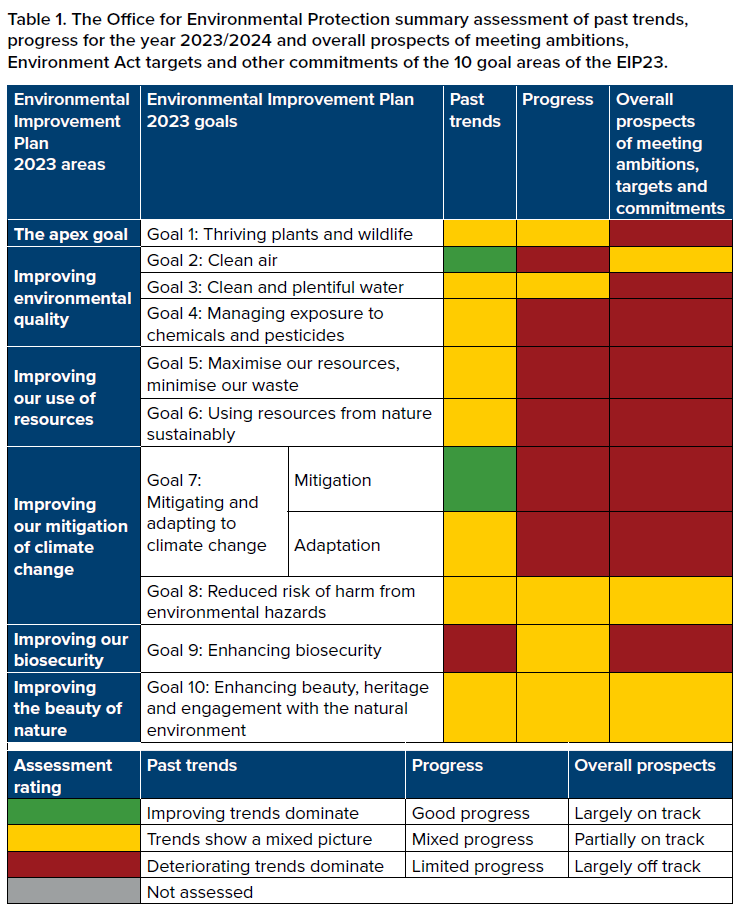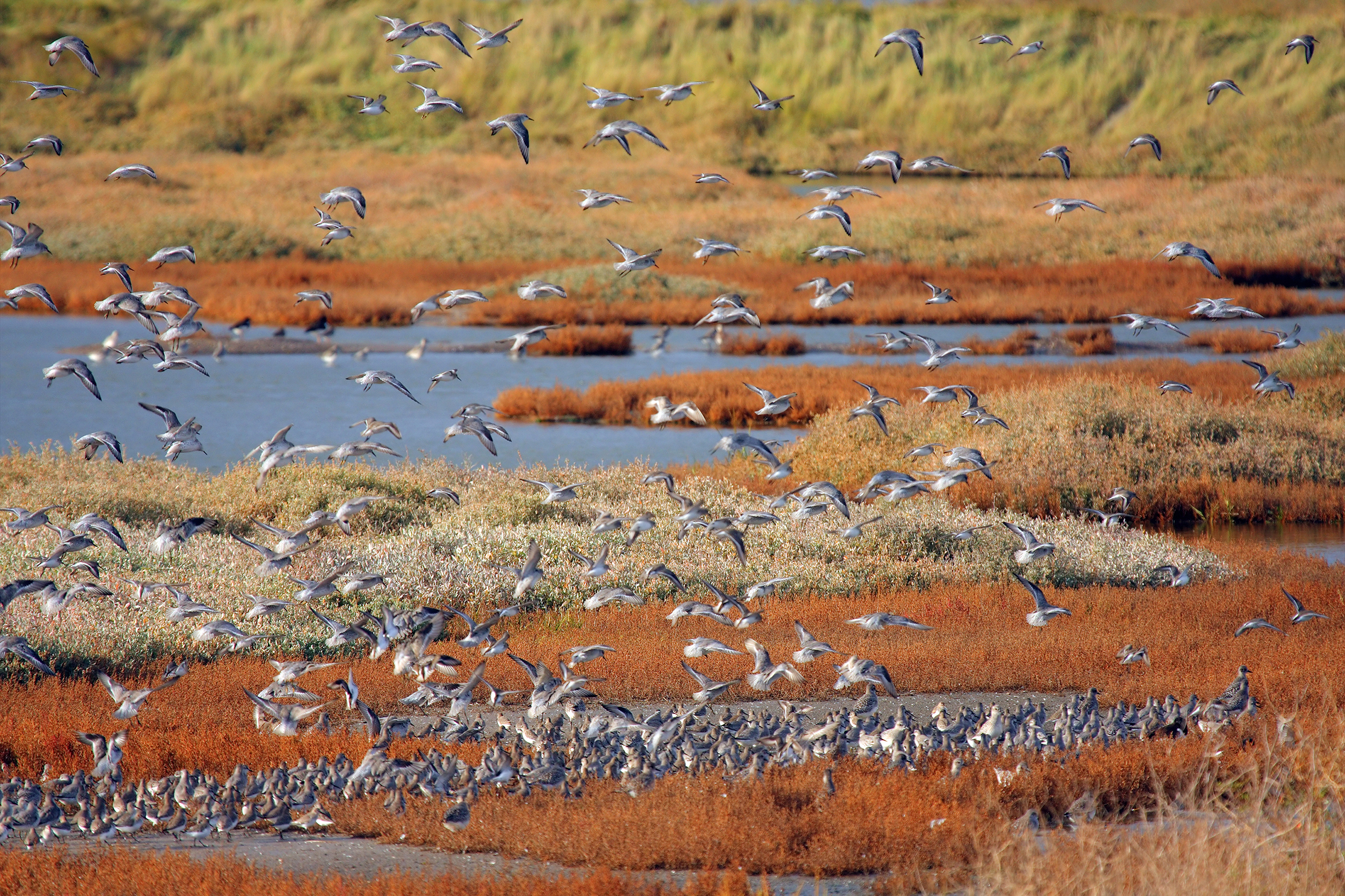OEP report says Government off track on progress on improving the natural environment 2023/2024
The Office for Environmental Protection (OEP) has published its third assessment of the Government’s progress on improving the natural environment. This report covers the period of April 2023 to March 2024. It should be noted that the Government has this week just published its response to the second assessment.
This third assessment report was launched today at an event in London with presentations from Natalie Prosser (CEO), Dame Glenys Stacey (Chair) and Dr Cathy Maguire (Head of Assessments). and hosted by Professor Robbie McDonald (Chief Insights Officer). As Dame Glenys noted, this is a “weighty tome” that provides an in-depth assessment of improving nature.
The OEP is now into its fourth year of operations and continues its robust approach to holding government to account, including current work on protected sites and inspection regimes.
The report says that the Government remains largely off track to achieve its legal commitments. There is some progress, but that progress is slowing and substantial challenges remain, and indeed that there is less progress in this assessment than in the previous assessment noting a “loss of momentum“. There is clearly work for Government to do. There are a number of key dates that are now not that far off, and the Government’s review of the Environmental Improvement Plan (EIP) will be pivotal to getting back on track.

Noting that the Government is off track, what is holding back progress? The report suggests the following reasons:
- Key policy and regulatory frameworks exist, but that they are not developed or delivered adequately.
- Actions do not address all of the major pressures.
- Resources are not provided at the levels needed.
- There is no urgency for action from Government.
The report outlines 8 key recommendations to Government:
- Get nature-friendly farming right
- Maximise the contribution of protected sites for nature
- Speed up action in the marine environment
- Set out clear mechanisms for reconciling competing demands on the use of land and sea
- Develop a circular economy framework
- Mobilise investment at the scale needed (both public and private)
- Regulate more effectively (noting that good regulation is an enabler, not a barrier)
- Harness the support needed to achieve ambitions (across all of government)
These recommendations overlap to a large extent with CIEEM’s recommendations on nature recovery for the new Government (published in July 2024).
The conclusions to the report were summarised at the launch event in four neat points. Government needs to:
- speed up and scale up actions
- stack up actions
- catch up with needed actions
- keep up progress with actions
In the discussion session at the end of the launch there were several further points that were of interest:
- Sustainable soil management is still an area that is lacking data, meaning that any progress cannot be assessed.
- There is an issue with continued delays on action to address PFAS and forever chemicals.
- One questioners asked what the OEP’s advice to the Defra Secretary of State, Steve Reed, would be. The response was that he should be engaging Treasury and expounding the benefits of healthy nature to people and the economy, that particular interest needs to be taken on planning reform and ensuring that any changes to protecting the environment and nature need to not just avoid impact but be radical in improving nature and environment, and lastly to prioritise the take up of environmental land management schemes (ELMS) by farmers.
In summing up at the end of the launch, Professor McDonald repeated that we need to move away from what Dr Richard Benwell (CEO, Wildlife and Countryside Link) had called the “endless sadness of looking through the rearview mirror at missed targets” and instead that we must look forward to a year of action from Government during 2025 and hopefully an optimistic assessment being published in 2026.
